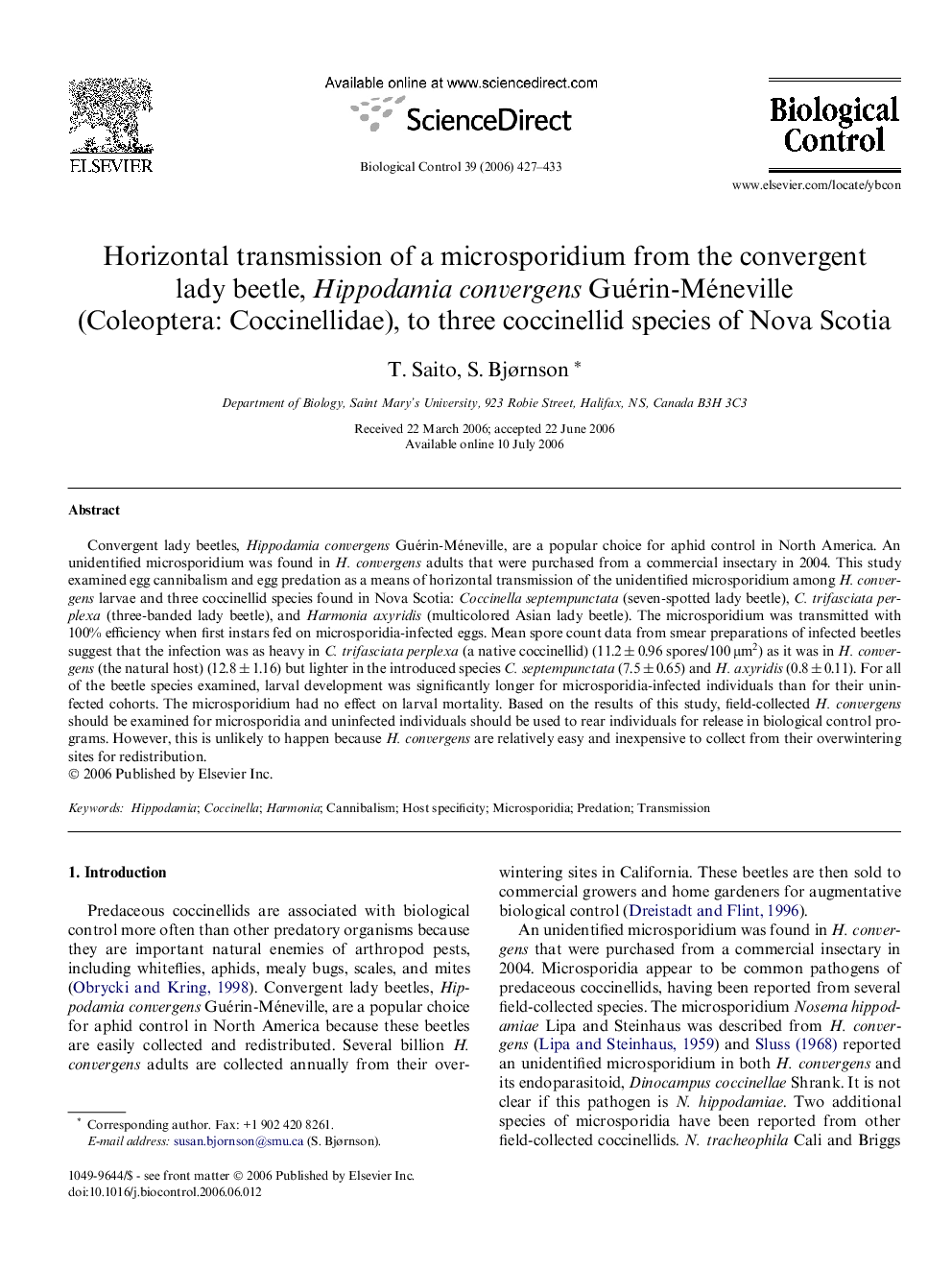| Article ID | Journal | Published Year | Pages | File Type |
|---|---|---|---|---|
| 4505391 | Biological Control | 2006 | 7 Pages |
Abstract
Convergent lady beetles, Hippodamia convergens Guérin-Méneville, are a popular choice for aphid control in North America. An unidentified microsporidium was found in H. convergens adults that were purchased from a commercial insectary in 2004. This study examined egg cannibalism and egg predation as a means of horizontal transmission of the unidentified microsporidium among H. convergens larvae and three coccinellid species found in Nova Scotia: Coccinella septempunctata (seven-spotted lady beetle), C. trifasciata perplexa (three-banded lady beetle), and Harmonia axyridis (multicolored Asian lady beetle). The microsporidium was transmitted with 100% efficiency when first instars fed on microsporidia-infected eggs. Mean spore count data from smear preparations of infected beetles suggest that the infection was as heavy in C. trifasciata perplexa (a native coccinellid) (11.2 ± 0.96 spores/100 μm2) as it was in H. convergens (the natural host) (12.8 ± 1.16) but lighter in the introduced species C. septempunctata (7.5 ± 0.65) and H. axyridis (0.8 ± 0.11). For all of the beetle species examined, larval development was significantly longer for microsporidia-infected individuals than for their uninfected cohorts. The microsporidium had no effect on larval mortality. Based on the results of this study, field-collected H. convergens should be examined for microsporidia and uninfected individuals should be used to rear individuals for release in biological control programs. However, this is unlikely to happen because H. convergens are relatively easy and inexpensive to collect from their overwintering sites for redistribution.
Related Topics
Life Sciences
Agricultural and Biological Sciences
Agronomy and Crop Science
Authors
T. Saito, S. Bjørnson,
